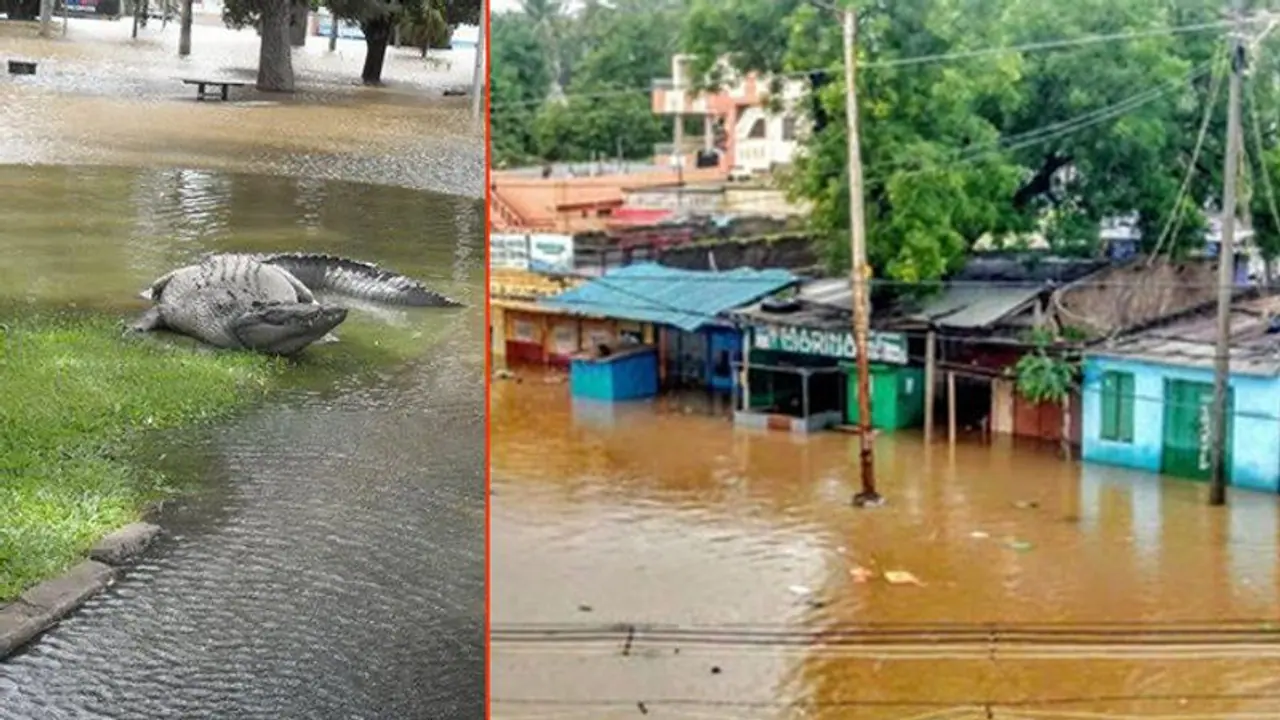Did you spot a crocodile or a snake in floodwaters, or maybe in your house? Well, don’t panic as an environmentalist explains what to do at the frightening moment
Bengaluru: The sight of a crocodile in a zoo or in a sanctuary can scare you. And when you spot one right next to your place of domicile, in cities and towns, can terrorise you.
It may sound strange but it is certainly not an element of fiction. As rains continue to batter India, crocodiles are being spotted in human habitation in Gujarat and Karnataka.
And what should one do when one spots a crocodile, or maybe, even a snake in flooded waters?
Joseph Hoover, an environmentalist, explains, “When one spots a crocodile or even a snake, one should report it to the authorities immediately. They will summon their rescue team and put them into action. At no cost should one panic. There are some who use it as an opportunity to carry out an adventure by trying to catch them. That should be forbidden. Trying to make it as an instance of bravado might not be profitable.”
Crocodiles are not poisonous, but can rip anyone apart if someone gets into its jaws. They get washed away as a river overflows. They come to the vacant land adjacent to water bodies.
"
Crocs are cast away one to two kilometres as it rains and floods. As they get displaced, they get traumatised. The first thing on their minds is to get back to their original habitats. As they are amphibians, they can even traverse on land.
In relation to snakes, the environmentalist adds, “Snakes, on the other hand, look for dark and cosy places. They enter houses and settle down.”
Crocodiles and snakes being spotted in floodwaters is not limited to India alone. When it flooded in Queensland, Australia, residents there took to Twitter and Facebook and shared their dreadful experiences of spotting the wild creatures and how they dealt with it.
